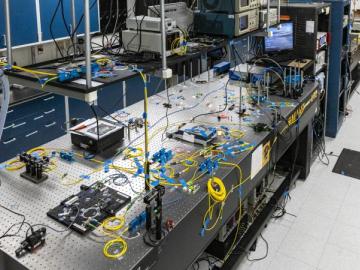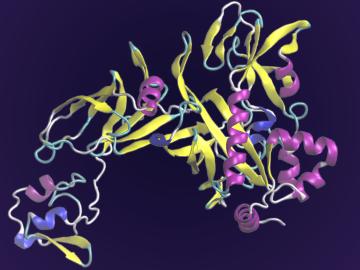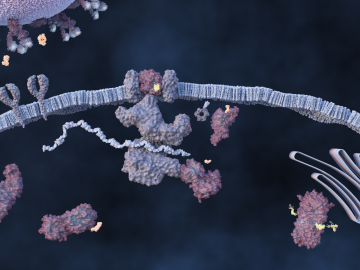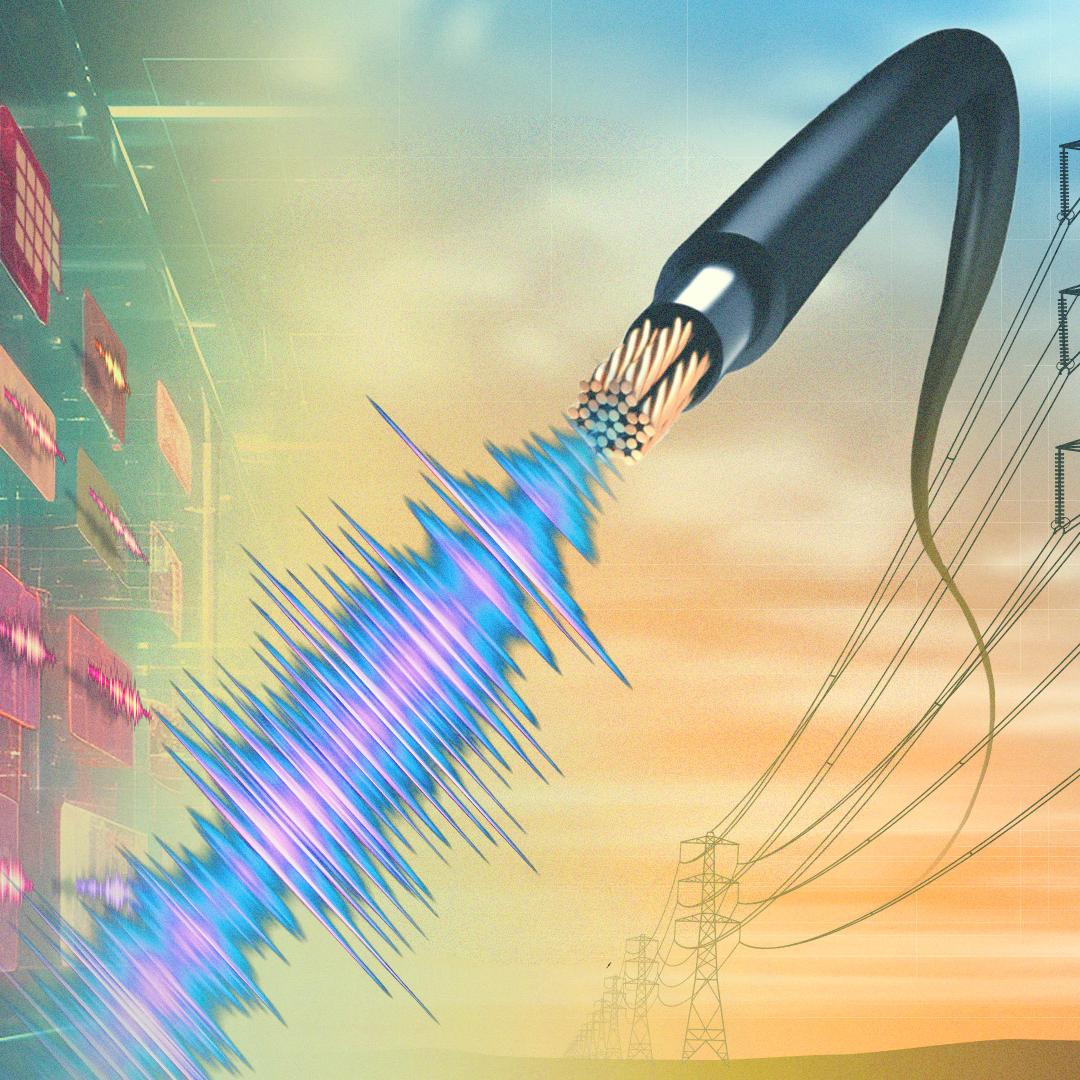
Filter News
Area of Research
- (-) Supercomputing (57)
- Advanced Manufacturing (2)
- Biological Systems (2)
- Biology and Environment (102)
- Clean Energy (85)
- Climate and Environmental Systems (2)
- Computational Biology (2)
- Computer Science (3)
- Electricity and Smart Grid (3)
- Functional Materials for Energy (1)
- Fusion and Fission (6)
- Fusion Energy (1)
- Isotope Development and Production (1)
- Isotopes (26)
- Materials (36)
- Materials for Computing (3)
- National Security (28)
- Neutron Science (14)
- Nuclear Science and Technology (14)
- Quantum information Science (3)
- Sensors and Controls (1)
News Topics
- (-) Bioenergy (9)
- (-) Biology (11)
- (-) Cybersecurity (8)
- (-) Frontier (28)
- (-) Grid (5)
- (-) Isotopes (1)
- (-) Molten Salt (1)
- (-) Space Exploration (3)
- 3-D Printing/Advanced Manufacturing (5)
- Advanced Reactors (1)
- Artificial Intelligence (36)
- Big Data (19)
- Biomedical (17)
- Biotechnology (2)
- Buildings (4)
- Chemical Sciences (5)
- Climate Change (17)
- Computer Science (95)
- Coronavirus (14)
- Critical Materials (3)
- Decarbonization (5)
- Energy Storage (8)
- Environment (21)
- Exascale Computing (22)
- Fusion (1)
- High-Performance Computing (38)
- Machine Learning (14)
- Materials (15)
- Materials Science (16)
- Mathematics (1)
- Microscopy (7)
- Nanotechnology (11)
- National Security (8)
- Net Zero (1)
- Neutron Science (13)
- Nuclear Energy (4)
- Partnerships (1)
- Physics (7)
- Polymers (2)
- Quantum Computing (19)
- Quantum Science (24)
- Security (5)
- Simulation (14)
- Software (1)
- Summit (42)
- Sustainable Energy (10)
- Transportation (6)
Media Contacts

Tackling the climate crisis and achieving an equitable clean energy future are among the biggest challenges of our time.

University of Pennsylvania researchers called on computational systems biology expertise at Oak Ridge National Laboratory to analyze large datasets of single-cell RNA sequencing from skin samples afflicted with atopic dermatitis.

More than 50 current employees and recent retirees from ORNL received Department of Energy Secretary’s Honor Awards from Secretary Jennifer Granholm in January as part of project teams spanning the national laboratory system. The annual awards recognized 21 teams and three individuals for service and contributions to DOE’s mission and to the benefit of the nation.

A rapidly emerging consensus in the scientific community predicts the future will be defined by humanity’s ability to exploit the laws of quantum mechanics.

A team of scientists led by the Department of Energy’s Oak Ridge National Laboratory and the Georgia Institute of Technology is using supercomputing and revolutionary deep learning tools to predict the structures and roles of thousands of proteins with unknown functions.

A world-leading researcher in solid electrolytes and sophisticated electron microscopy methods received Oak Ridge National Laboratory’s top science honor today for her work in developing new materials for batteries. The announcement was made during a livestreamed Director’s Awards event hosted by ORNL Director Thomas Zacharia.

A team of collaborators from ORNL, Google Inc., Snowflake Inc. and Ververica GmbH has tested a computing concept that could help speed up real-time processing of data that stream on mobile and other electronic devices.

The U.S. Department of Energy’s Office of Science announced allocations of supercomputer access to 51 high-impact computational science projects for 2022 through its Innovative and Novel Computational Impact on Theory and Experiment, or INCITE, program.

An ORNL-led team comprising researchers from multiple DOE national laboratories is using artificial intelligence and computational screening techniques – in combination with experimental validation – to identify and design five promising drug therapy approaches to target the SARS-CoV-2 virus.

The U.S. Department of Energy’s Innovative and Novel Computational Impact on Theory and Experiment, or INCITE, program is seeking proposals for high-impact, computationally intensive research campaigns in a broad array of science, engineering and computer science domains.


